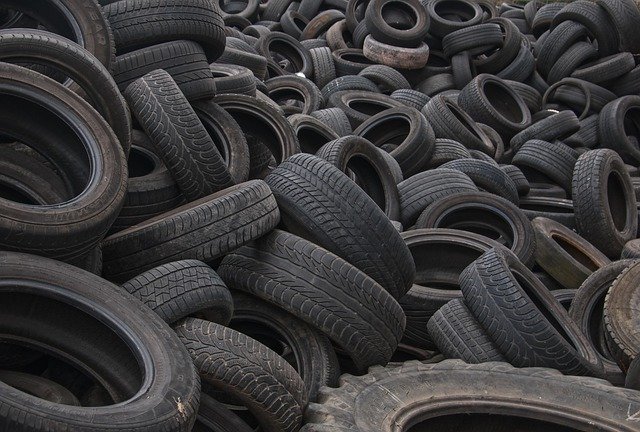Waste Management Jobs in the UK
Individuals residing in the UK may find various roles within the waste management sector. These positions encompass a range of responsibilities, including adherence to safety standards and daily operational tasks. Training programs are available to equip candidates with the essential skills required for success in this field.

Waste management in the UK represents a robust and growing industry that combines environmental stewardship with essential public services. The sector encompasses everything from household waste collection to complex industrial recycling operations, offering varied career paths for those interested in making a tangible difference to the environment. With increasing focus on sustainability and circular economy principles, waste management professionals are becoming more valuable than ever in helping the UK meet its environmental targets and obligations.
Understanding the Waste Management Sector
The waste management industry in the UK employs approximately 150,000 people across various specializations. This sector handles over 200 million tonnes of waste annually, with operations spanning public and private entities. Local authorities typically oversee household waste collection, while private companies often manage commercial and specialized waste streams.
The industry structure includes several key segments: collection services, sorting facilities, recycling plants, energy recovery operations, and landfill management. Recent years have seen significant growth in recycling and recovery operations as the UK works toward ambitious waste reduction targets. The sector is increasingly technology-driven, with innovations in sorting machinery, waste-to-energy processes, and data management systems creating new job categories beyond traditional waste handling roles.
Career pathways in waste management range from entry-level collection operatives to specialized engineers and senior environmental consultants. The sector offers stability due to the essential nature of waste services, with many roles providing opportunities for advancement through experience and additional qualifications.
Key Responsibilities in Waste Management Roles
Waste management professionals fulfill diverse functions depending on their specific roles. Collection operatives ensure timely and safe removal of waste from residential and commercial premises, operating specialized vehicles and adhering to strict health and safety protocols. These front-line roles require physical fitness, attention to detail, and excellent customer service skills.
Technical specialists focus on processing facilities where they operate machinery, monitor environmental parameters, and ensure compliance with regulations. These positions demand more specialized knowledge of waste treatment processes, environmental chemistry, and operational safety. Technicians may oversee anaerobic digestion plants, materials recovery facilities, or hazardous waste treatment operations.
Management roles encompass logistics coordination, team supervision, contract management, and strategic planning. These positions require strong leadership capabilities, regulatory knowledge, and business acumen. Environmental compliance officers ensure operations meet increasingly stringent regulations, conducting audits and preparing documentation for regulatory authorities.
Research and development positions are growing in importance as the sector seeks innovative solutions for waste challenges. These roles involve developing new recycling technologies, improving resource recovery rates, and finding novel applications for recovered materials. Such positions typically require higher education in environmental science, engineering, or related fields.
Training Programs for Essential Skills in Waste Management
Entering the waste management field has become more structured, with various training pathways available. For entry-level positions, the Chartered Institution of Wastes Management (CIWM) offers introductory certificates that cover fundamental knowledge and safety practices. These programs provide a solid foundation and are often accessible without prior experience in the sector.
For those seeking to advance their careers, more comprehensive qualifications exist. These include Level 3 and 4 diplomas in waste management operations, sustainable resource management, and environmental conservation. Higher education institutions also offer specialized degrees in environmental management, waste technology, and sustainable development that prepare graduates for technical and leadership roles.
On-the-job training remains crucial in this hands-on industry. Many employers provide structured development programs covering equipment operation, health and safety protocols, and environmental regulations. Specialized training for hazardous waste handling, transport of dangerous goods, and emergency response procedures is mandatory for certain roles and typically provided by employers or external training organizations.
Professional development continues throughout careers in waste management, with continuing education focusing on emerging technologies, changing regulations, and management skills. The CIWM and other industry bodies offer ongoing professional development opportunities, including workshops, conferences, and certification programs that help professionals stay current with industry developments.
Career Progression Opportunities
The waste management sector offers clear progression paths for ambitious professionals. Many successful careers begin in operational roles before advancing to supervisory positions. With experience and additional qualifications, professionals can move into specialized technical roles or management positions with broader responsibilities.
Senior positions in the industry include operations managers, environmental compliance directors, and sustainability consultants. These roles typically require extensive experience combined with relevant qualifications and demonstrated leadership abilities. The growing emphasis on corporate environmental responsibility has also created opportunities for waste management experts in other sectors, advising organizations on waste reduction strategies and resource efficiency.
Entrepreneurial opportunities exist within the sector as well, particularly in specialized recycling, waste consultancy, and innovative waste treatment technologies. As the circular economy concept gains traction, new business models are emerging that transform waste challenges into commercial opportunities, creating additional career paths for those with technical knowledge and business acumen.
Salary and Compensation Expectations
Compensation in the waste management sector varies widely depending on role, experience, qualifications, and geographical location. Entry-level collection operatives typically earn between £18,000 and £22,000 annually, while technical specialists with several years of experience can expect salaries ranging from £25,000 to £35,000.
Management positions command higher compensation, with operations managers earning between £35,000 and £50,000 depending on the size and scope of their responsibilities. Senior directors and specialists in environmental compliance or sustainability can earn upwards of £60,000 in larger organizations or consultancies.
Prices, rates, or cost estimates mentioned in this article are based on the latest available information but may change over time. Independent research is advised before making financial decisions.
Future Outlook for Waste Management Careers
The waste management sector faces transformation driven by environmental policies, technological advances, and changing public attitudes toward waste. The UK’s commitment to circular economy principles and ambitious recycling targets means continued growth in roles focused on resource recovery and waste minimization.
Emerging areas include data analytics for waste tracking and optimization, advanced materials recovery, biological waste treatment, and specialized recycling for electronic waste and batteries. These fields require new skill sets combining technical knowledge with digital capabilities and environmental awareness.
Climate change considerations are increasingly influencing waste management practices, creating opportunities for professionals who can develop low-carbon waste solutions and contribute to greenhouse gas reduction strategies. As the sector continues to evolve from waste disposal to resource management, professionals who can adapt to these changing paradigms will find themselves well-positioned for long-term career success in this essential industry.




